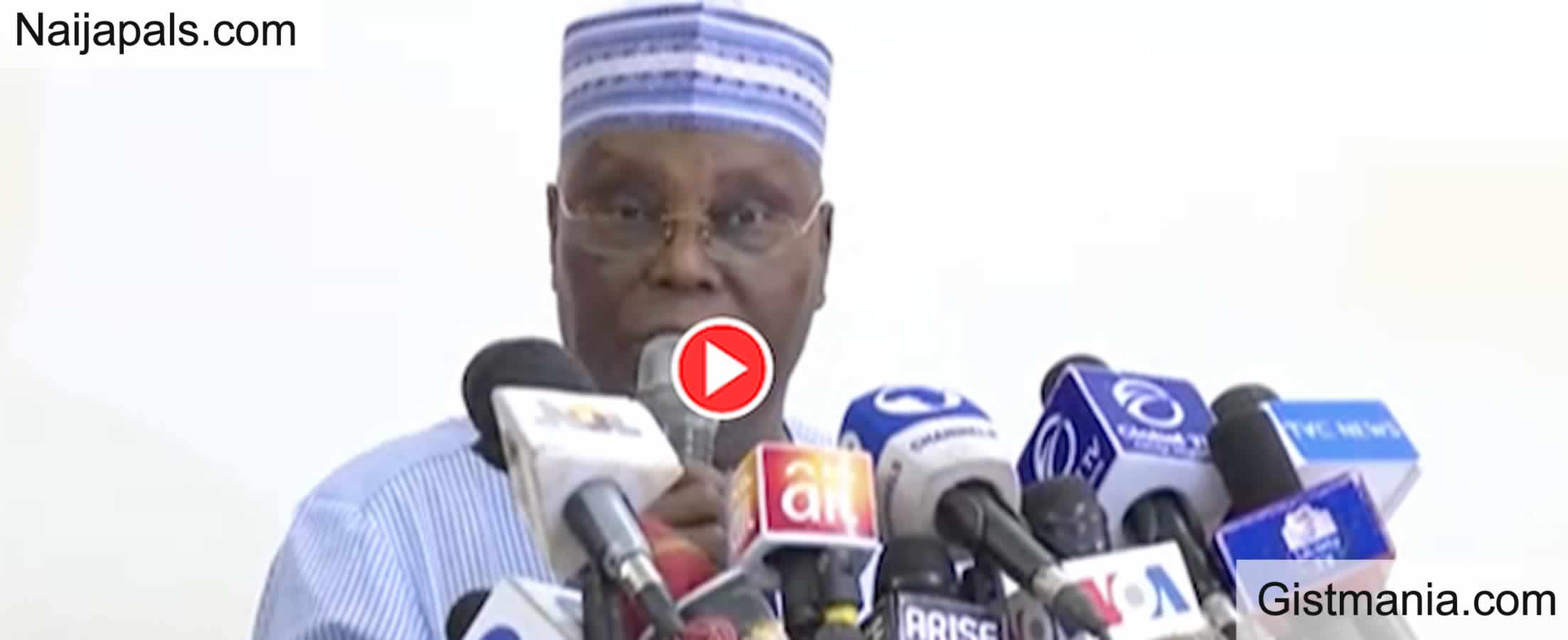
Former Vice President Atiku Abubakar has outlined several key actions he would have taken differently if he were the President of Nigeria.
Atiku stated that his disclosure was prompted by the numerous inquiries he has received from Nigerians regarding what he would do differently if he were in charge of the country’s affairs.
In a post on his X handle on Sunday, the former Peoples Democratic Party (PDP) presidential candidate from the last general election stated that such inquiries divert attention from the pressing questions regarding what President Bola Tinubu must do to alleviate the severe hardships caused by his trial-and-error economic policies.
In a lengthy statement titled “What We Would Have Done Differently,” Atiku said he would tackle corruption and reposition the Nigerian National Petroleum Company Limited, NNPCL, which, according to him, is a huge beneficiary of the status quo.
He said he would pay particular attention to Nigeria’s poor refining infrastructure, and adopt a gradualist approach in the implementation of the subsidy reforms.
Atiku also disclosed that he would implement a robust social protection programme to support the poor in navigating the cost-of-living challenges arising largely from reform. implementation.
The statement said,
“I would have prioritized the following: “First, tackling corruption. Fighting corruption should have commenced with the repositioning of the NNPCL, which is a huge beneficiary of the status quo. Its commitment to reform and capacity to implement and enforce reforms is suspect. The subsidy regime has provided an avenue for rent-seeking, individuals, the NNPCL and its guardians will be threatened by reforms.
“Second, paying particular attention to Nigeria’s poor refining infrastructure. We are by far the most inefficient OPEC member country in terms of both the percentage of installed refining capacity that works and the percentage of crude refined. We would’ve commenced the privatization of all state-owned refineries and ensure that Nigeria starts to refine at least 50% of its current crude oil output. Nigeria should aspire to export 50% of that capacity to ECOWAS member states.
“Third, adopt a gradualist approach in the implementation of the subsidy reforms. Subsidies would not have been removed suddenly and completely. It is instructive that when I was Vice President, we adopted a gradualist approach and had completed phases 1 and 2 of the reform before our tenure ended. The incoming administration in 2007 abandoned the reforms, unfortunately. The majority of the countries that review or rationalize subsidy payments adopt a gradualist approach by phasing price increases or shifting to a universal targeted approach (Malaysia, 2022 and Indonesia, 2022 -2023). In many EU economies, complete withdrawal often takes 5 years to effect. The gradualist approach allows for adjustments, and adaptation and minimizes disruptions and vulnerability.
“Fourth, implement a robust social protection programme that will support the poor in navigating the cost-of-living challenges arising largely from reform implementation. We would’ve invested the savings from subsidy withdrawal to strengthen the productive base of the economy through infrastructure maintenance and development; to improve outcomes in education and healthcare delivery; to improve rural infrastructure and support livelihood expansion in agriculture; and develop the skills and entrepreneurial capacity of our youth in order to enhance their access to better economic opportunities.”
| Posted: at | |






 TRENDING GISTS
TRENDING GISTS  Singer, Portable Weighs In On Mercy Johnson’s Drastic Weight Loss
Singer, Portable Weighs In On Mercy Johnson’s Drastic Weight Loss I Faded Out Because I Became Less Ambitious’ Says Singer, Orezi
I Faded Out Because I Became Less Ambitious’ Says Singer, Orezi Ogun Female Broadcaster, Mrs. Bukola Agbakaizu Slumps And Dies at Work
Ogun Female Broadcaster, Mrs. Bukola Agbakaizu Slumps And Dies at Work
 Funke Akindele Makes List Of Hollywood’s ‘Most Influential Women In International Film’
Funke Akindele Makes List Of Hollywood’s ‘Most Influential Women In International Film’